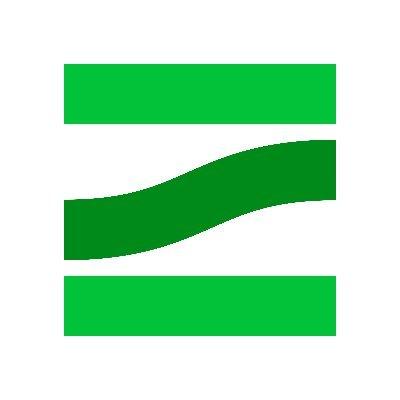Buy pre-IPO stock in private companies
Invest in real estate loans
Investments
$10,000
The minimum investment on EquityZen is $10,000, though this may vary by offering.
Investments
$10
Groundfloor enables individuals to begin investing in real estate with a minimal initial requirement of only $10.
High Risk
4/5
Investing in private companies via EquityZen involves risks such as limited liquidity, market volatility, company performance uncertainties, regulatory changes, less available information, and potential lack of diversification, which could impact investment returns.
Moderate Risk
3/5
Investing on Groundfloor involves credit risk from borrower default, market risk due to real estate market fluctuations, liquidity risk as investments are tied up until loan maturity without a secondary market for early exit, regulatory risk from changes in laws affecting real estate and crowdfunding, and platform risk related to operational disruptions or cybersecurity threats.
Minimum Liquidity
1/5
EquityZen offers liquidity for vested shares only. It does not provide liquidity for unvested shares, unvested RSUs, or options directly.
Minimum Liquidity
1/5
On Groundfloor, liquidity is tied to the term of the real estate loans, which range from 6 to 18 months. Investors' funds are committed until the loan matures and the borrower repays.
Receive new reviews from Fintorial
Not Predictable Return
N/P
Unlike public market investments, private investments carry higher risks and unpredictability. Consequently, it's challenging to define a standard return rate for EquityZen investments.
Moderate Return
10.72 %
Groundfloor's loans are graded from A to G, with interest rates ranging from 5.5% to 25.5% annually, based on risk. A diversified portfolio across all repaid loans to date would have earned a 10.72% annualized net return.
Long-term Investment
2-5 years
Typically, companies on EquityZen have received late-stage funding, suggesting an expected investment horizon of 2-5 years, but outcomes can vary widely.
Short-term Investment
6+ months
Groundfloor investments have loan terms ranging from 6 to 18 months.
Who can invest
International
Groundfloor is accessible to investors both in the US and internationally. However, for non-US investors, a minimum transfer-in amount of $5,000 is required.
Moderate Volatility
3/5
Assets on EquityZen, which are shares in private companies, can be highly volatile due to limited public information, sensitivity to market conditions, low liquidity, and company-specific events, leading to significant price fluctuations.
Moderate Volatility
3/5
The assets on Groundfloor, which are short-term real estate loans, generally exhibit lower volatility compared to stocks, as their value is more closely tied to specific real estate projects and less to daily market swings.
Regulation and audits
SEC Regulated
EquityZen Securities is registered with the SEC and is a member of FINRA/SIPC, ensuring it adheres to regulatory standards and practices for investor protection and undergoes regular audits.
Regulation and audits
SEC Regulated
Groundfloor offers securities under Regulation A of the Securities Act of 1933, allowing it to sell securities to residents in states where it's qualified or announced its intent under Regulation A's Tier 1 or Tier 2.
Insurance
No
EquityZen is a FINRA/SIPC member firm, offering account protection up to $500,000 (including $250,000 for cash claims) through SIPC in case of brokerage failure, not covering market value losses.
Insurance
No
Investments on Groundfloor are not insured by any government agency such as the FDIC or SIPC, nor are they guaranteed by Groundfloor. This means investors fully assume the risk of borrower default or project failure, without any insurance safety net.
Payouts
No Recurring Payouts
Investors in private companies on EquityZen typically do not receive dividends, as these companies often reinvest profits to fuel growth.
Payouts
Interest
Groundfloor pays interest on funded loans. Interest accrues from the investment date until the loan is repaid. Loans may have monthly or deferred payment terms, with monthly interest payments processed once a month and lump sum repayments for deferred loans.
Withdrawals
Investors can get their money back from investments on EquityZen mainly through an IPO, acquisition of the company, or secondary market sales on the platform. However, returns depend on market demand and timing of these liquidity events, with no guaranteed timeline.
Withdrawals
Investors on Groundfloor get their money back, including principal and accrued interest, once the borrower repays the loan, typically within 6 to 18 months. Repayments are processed within 7 days, with funds made available in the investor's dashboard for withdrawal or reinvestment.
Extra Fees
Yes
EquityZen charges a 5% fee to sellers upon transaction closure. For investors, a one-time sales fee applies: 5% for investments up to $500,000, 4% for $500,000 to $1 million, and 3% for over $1 million.
Extra Fees
No
Investors on Groundfloor pay no fees. Instead, borrowers are charged an underwriting fee by Groundfloor, ranging from 2% to 4.5% of the loan's principal amount.
Taxes
Tax Form
EquityZen issues a Schedule K-1 for taxable events and provides vetted tax documentation to investors. Upon investment, individuals complete necessary tax forms (W-9 or W8-BEN) and receive annual tax updates.
Taxes
Tax Form
Groundfloor provides tax support by issuing a 1099-INT form for interest income over $10, a 1099-B for principal losses, and a 1099-MISC for promotional credits over $600.

